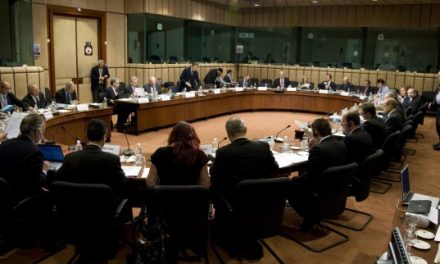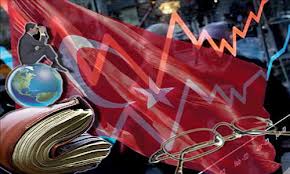This month marks the second anniversary of an economic expansion that began at the end of what is now being called the Great Recession. But for millions of small businesses and households, the economic recovery has yet to arrive.
Frank Goodnight, owner of Diversified Graphics, a Salisbury, N.C., printing company with 12 employees, is among them. In 37 years, he has survived some tough economic times. But never like this.
“This recession is equal to the other four doubled,” he said. “Business has just been so bad for so long that right now we’re just hunkered down trying to survive.”
Consumer sentiment worsened more than expected in June on renewed concerns about the outlook for the economy, a survey released Friday showed . It was just the latest in a series of surveys that have pointed to a marked downward shift in the outlook for jobs, housing and the stock market.
Economists say the lingering effects of the Great Recession help explain why so many businesses, investors and consumers remain so gloomy about the outlook for the U.S. economy. The mood appears to be worsening, leading to a concern among economists and others of a self-fulfilling prophecy — that worried consumers will slow spending, further hampering the recovery, and perhaps raising the risk of a double-dip recession or at least yielding years of sluggish growth.
“Even though the US will probably escape another recession, the inability and reluctance of households to spend will result in a number of years of sub-par economic growth,” said Paul Dales, senior U.S. economist at Capital Economics.
“If you think things are going to get bad and you stop buying, things will get bad,” said Goodnight, the printing company owner. “And that’s where we are right now. Everyone is afraid of the deficits. They’re afraid of the new regulations that are coming down fairly soon. They’re afraid about health care. And no one’s going to make a major investment when there’s this much uncertainty in the air.”
You don’t have to look far to find the source of all this gloom. A solid economic expansion slowed to a sluggish 1.8 percent annual growth rate in the first quarter. After posting healthy gains for most of this year, the job market stalled badly in May. The rising cost of gasoline has taken a big bite out of household budgets, though pump prices have recently begun to back down from a peak of nearly $4 a gallon. After stabilizing last year, home prices have begun falling again.
Since the housing bubble burst in 2006, about $10 trillion in household wealth has been wiped out. Some 12 million homeowners with mortgages — roughly one in four — owe more than their home is worth. That means they’ll be cutting into future savings to pay off a debt that will leave them with little to show for it once they’re done.
According to Friday’s survey from Thomson Reuters and the University of Michigan, consumers remained pessimistic about stagnant incomes and job prospects, and their view of their own finances was largely unchanged at negative levels.Expectations about income — adjusted for inflation — are worse than at any time since the early 1980s.
“Confidence hit an all-time low in this recession and has been moving sideways for a few years,” she said. “Despite some improvement in the economy, it still feels like a recession to consumers.”That reinforced a Conference Board report from earlier this week that reported consumers became “considerably more apprehensive” in May about the outlook for jobs, inflation and future earnings. Expectations about the future were already lower than they have been for much of the 60-year history of the board’s Consumer Confidence Index, according to survey director Lynn Franco.
Other surveys have picked up on the renewed sense of gloom. An NBC News/Wall Street Journal poll this week found that 44 percent of respondents think the U.S. economy is headed back into recession in the next six months. A Gallup poll found that Americans’ confidence in the economy fell nine percentage points in just two weeks, and was six points worse than a year ago.
The mood of small business owners fell for a third straight month in May, according to a report from the National Federation of Independent Businesses, a trade group. Nearly two-thirds of owners polled said they consider this a bad time to expand their business; nearly three-fourths blamed the weak economy.
“Here we are two years after the end of the recession, and all of our readings are still at recession levels,” said NFIB President William Dunkelberg. “There’s been no recovery in the small business sector, based on our numbers.”
Not all business leaders are downbeat. Most chief executive officers of large U.S. companies expect higher sales and higher capital spending in the next six months, according to a quarterly survey by the Business Roundtable. Some 51 percent said they expected to add jobs in the second half of the year, while 61 percent would boost spending on buildings and machinery.
“The CEOs tend to be from very big companies,” said Well Fargo economist John Silvia. “Those companies have done fairly well because of the global economic recovery.”
Manufacturers and other export-driven businesses also have been pockets of strength as a weaker dollar has given exporters a leg up in overseas markets.
Profits from those large companies and manufacturers have helped drive stock prices higher since the recession officially ended. But renewed fears of a slowdown have set the market rally back.
Some investors are worried that corporate profit gains are going to be harder to come by in the second half of this year. Last month, investors withdrew $2.7 billion more than they deposited into stock mutual funds, snapping a four-month string of net deposits that began in January, according to Strategic Insight. Falling stock prices create another drag on consumer spending.
“We are forecasting that real household net worth should take a major hit in the second quarter of this year because the stock market is not doing well and there’s going to be no relief from housing,” said Chris Christopher, an economist at IHS Global Insight. “When people take a loss on their financial assets they’re going to step back on their spending.”
The recovery has also been weakened by sluggish wage gains and fears that future paychecks aren’t going to grow.
“There’s not really much impetus for spending other than wages,” said Franco. “And what we’re seeing is that a lot of the profits that companies have made over the last several quarters have not filtered down to the consumer’s bottom line.”



















